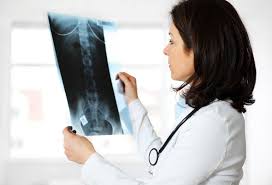
CERTIFICATE IN X RAY TECHNOLOGY (1 YEAR)
CERTIFICATE IN X-RAY TECHNOLOGY
📘 SYLLABUS STRUCTURE
1. Introduction to X-Ray Technology
- History of X-ray: Discovery by Wilhelm Roentgen (1895)
- Importance of radiology in modern diagnostics
- Scope and role of an X-ray technician
2. Basics of Human Anatomy and Physiology
- Introduction to body systems (skeletal, muscular, respiratory, digestive)
- Anatomical directions and body positions
- Importance of anatomy in imaging procedures
3. Fundamentals of Radiation Physics
- Structure of atoms
- Electromagnetic radiation and X-ray production
- Properties and types of X-rays
- Units of radiation: Roentgen, Gray, Sievert
4. Radiographic Equipment and Accessories
- Components of an X-ray machine
- Control panel, tube, collimator, cassette, screen
- Grids and Bucky systems
- Introduction to CR (Computed Radiography) systems
5. Radiographic Procedures (Positioning Techniques)
- Positioning for Chest, Upper & Lower Limb, Abdomen
- Basic spine and skull projections
- Use of markers and positioning aids
- Patient preparation and comfort
6. Dark Room Techniques (If using conventional systems)
- Structure and lighting of a darkroom
- Manual film processing steps (developer, fixer, washing, drying)
- Film storage and quality control
7. Radiation Protection and Safety
- Biological effects of radiation
- ALARA principle (As Low As Reasonably Achievable)
- Personal protective equipment (PPE): lead aprons, gloves
- Use of dosimeters and radiation safety regulations
8. Patient Care and Communication
- Patient identification and verification
- Explaining procedures and gaining cooperation
- Handling pediatric, geriatric, and critical patients
- Medical ethics and patient confidentiality
9. Clinical Practicum / Internship
- Hands-on experience in a diagnostic imaging center or hospital
- Exposure to real X-ray procedures under supervision
- Practice in darkroom or digital processing (CR/DR)
- Maintaining logbook and technician’s report

